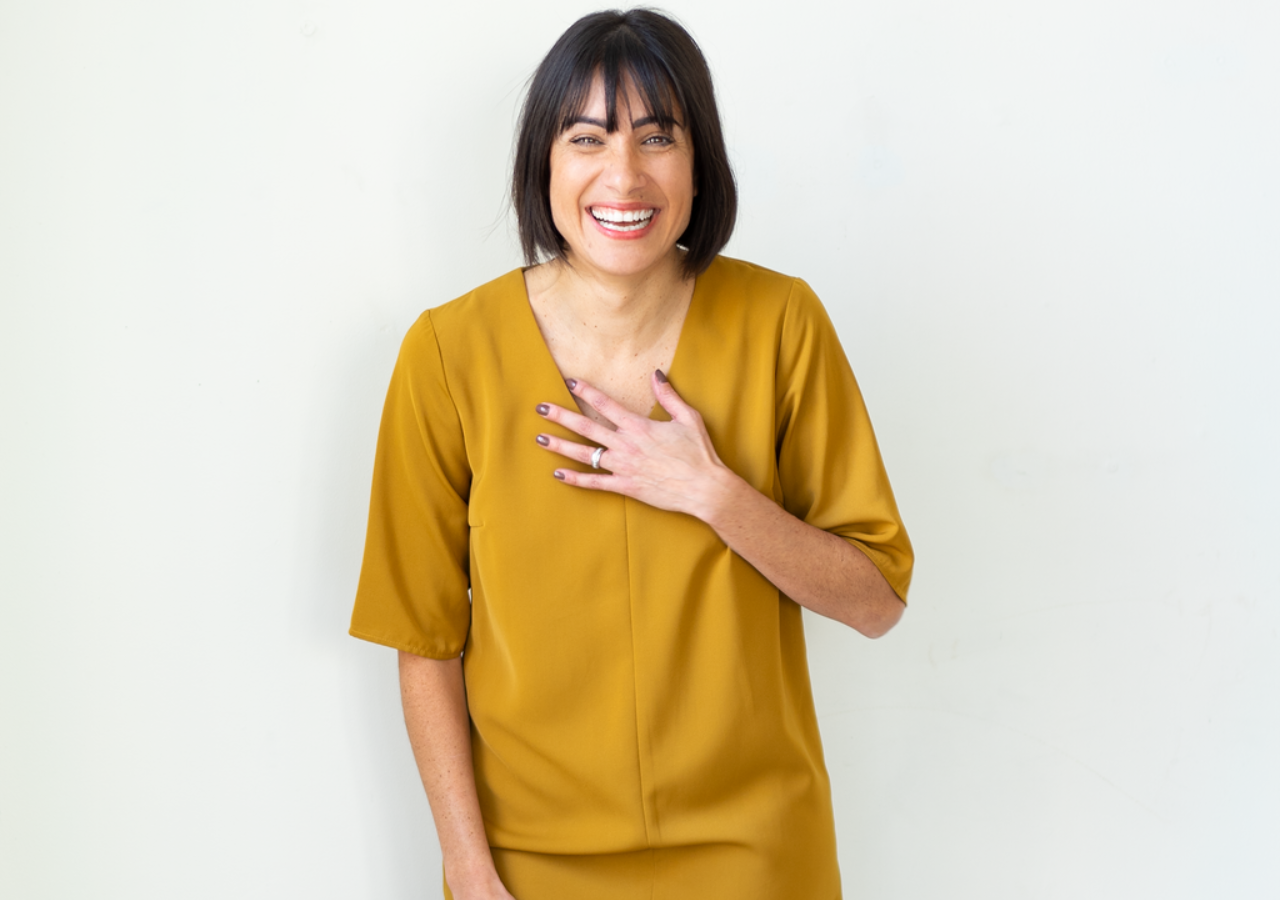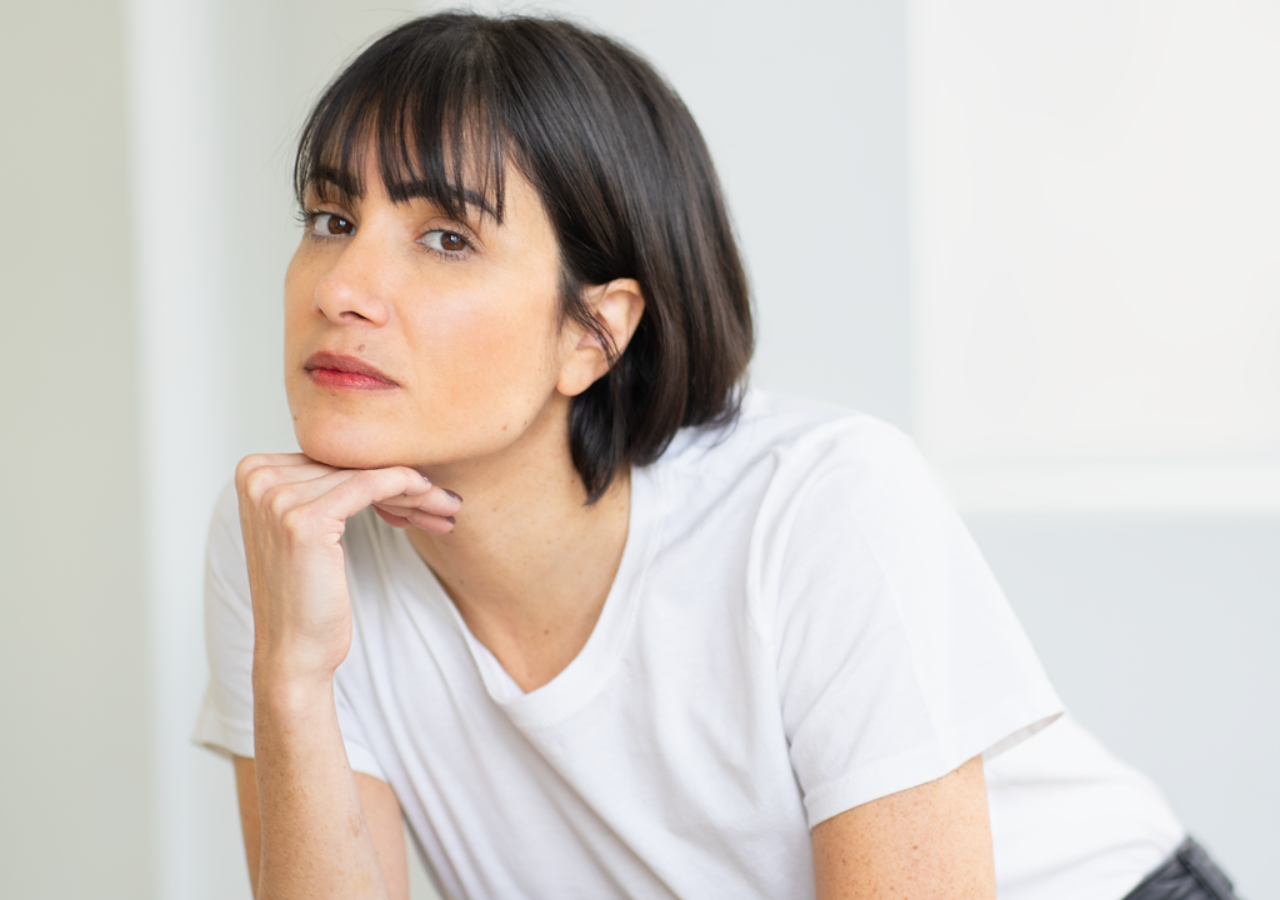After graduating from Canada’s National Ballet School, Anisa went on to become the co-artistic director of Hit and Run Productions Inc. in Toronto. Currently, she also serves as a board director on Canada’s National Ballet School’s board and sits on the Advisory Committee for the Creative School at Toronto Metropolitan University, where she also teaches their Consent and Boundaries for Dancers in their Performance Programme.
With diversity being a clear goal in her career, Anisa is also one of the three individuals behind The Platform with Ryan Lee and Benjamin Landsberg – a dance collective in Toronto. Her work in the creative field was also recognised when she received the Dora Mavor Moore Award. An award to honour exceptional artistic talent in Toronto.
Anisa also works as an Intimacy Coordinator and Director, a significant role in ensuring dancers safety and comfort. She has already been a part of working on Star Trek: Section 31, Star Trek: Starfleet Academy as well as Orphan Black: Echoes, to name a few.
She has clearly proved that veering off her initial path has given herself flexibility and opened many doors. One even led to her being appointed the pilot choreographer for Steven Spielberg’s Minority Report.
Anisa spoke with us to explain what keeps her grounded in her vision as well as her hopes for the upcoming Global Encounters Festival:
Can you share a pivotal moment in your life that significantly shaped your artistic direction or approach?
One stands out: graduating from Canada's National Ballet School. While it surprised many, including myself, that I didn't pursue a career in ballet after such rigorous training, this divergence proved crucial. It liberated me from pre-conceived notions and allowed me to embrace my multifaceted artistic nature. Instead of focusing solely on classical ballet, I gravitated towards the dynamism of contemporary dance, working with esteemed companies like Toronto Dance Theatre, Zata Mmm and ProArteDanza. This period fostered a deep understanding of the collaborative creative process, leading me to naturally assist choreographers, eventually transitioning into formal roles as a Creative Producer and Assistant, notably with Guillaume Côté and Robert Lepage.
A subsequent shift occurred during a television project where I was the movement coordinator. This experience revealed the applicability of my movement expertise to a wider context, leading me to specialise in intimacy coordination. This unexpected but fulfilling path demonstrates my commitment to adaptability and exploring the intersection of movement and storytelling across different artistic disciplines. My artistic philosophy centres on following my intuition, embracing diverse opportunities, and using my skills to contribute meaningfully to various creative endeavours.
How do you balance staying true to your artistic vision while also considering the expectations of your audience?
It isn't a challenge I find particularly difficult, because I fundamentally believe they're not mutually exclusive. My goal isn't to create art in spite of an audience, but for an audience – an audience that craves emotional resonance, surprising perspectives, and a deeper engagement with themselves.
I aim to craft work that provides escape, but also leaves a lasting impact, even if this is sometimes subtle. Whether it's the visceral thrill of a spectacle or the quiet contemplation inspired by a nuanced movement, I strive for experiences that move the audience, challenge their assumptions, and perhaps even offer a new understanding of the human condition. This isn't about 'dumbing down' the work; it's about finding the most effective means to connect with viewers on an emotional and intellectual level.
Ultimately, the most successful art transcends mere entertainment; it fosters dialogue, provokes thought, and resonates long after the curtain falls or the credits roll. That's the kind of work I strive to create.
Which challenges have you faced in your career, and how have you coped with them?
One of my biggest challenges has been navigating the exhilarating yet demanding world of being 'all in.' I'm incredibly fortunate to do work I'm passionate about, and when opportunities arise, I often find myself diving in headfirst. The problem is, that level of intense focus, while incredibly rewarding in the short term, can easily lead to imbalance. It's a difficult tightrope walk because the very thing that fuels my success – my deep engagement and enthusiasm – also makes it hard to step back and prioritise other essential aspects of life, like family, health, and even just simple rest. I'm constantly working on strategies to create more sustainable rhythms, learning to recognize my limits, and consciously scheduling time for activities unrelated to work, even if it feels counterintuitive when I'm brimming with creative energy. It's a continuous learning process, and honestly, finding that perfect equilibrium feels like an ongoing journey rather than a destination.
What message or impact do you hope your work will have on your audience or society at large?
Honestly, I don't have one grand, sweeping message I'm trying to broadcast. I'm more focused on the process than a single, overarching impact. For me, the most rewarding outcome is fostering a collaborative environment where everyone feels valued and invested. When a team thrives—when people feel seen, heard, and like their contributions genuinely matter—the work itself becomes exponentially better, and everyone benefits personally and professionally. So, while the specific projects I work on might vary, my consistent goal is to elevate the standard of creative output and the quality of the team experience. That's where I see the most meaningful impact.
What’s one thing in particular you’re looking forward to about the Global Encounters Festival?
I'm really looking forward to the connections that will be made. It's always inspiring to be around so many creative minds, and I think the collaborative energy of a festival like this is invaluable – a great chance to learn from others and maybe even spark some exciting new ideas and collaborations.
What do you hope the festival will do for our artist community?
I hope it acts as a powerful catalyst for growth. I envision it showcasing the incredible talent we have, highlighting the real and significant contributions artists make to our society – proving that art isn't just a hobby, but a vital and valuable profession. This festival should be a platform that amplifies the voices of these brilliant minds, giving them a stronger presence and allowing their work to resonate even more deeply with the wider community. It’s already amazing to see the energy and passion within our artist community, and the festival should help that really shine.









